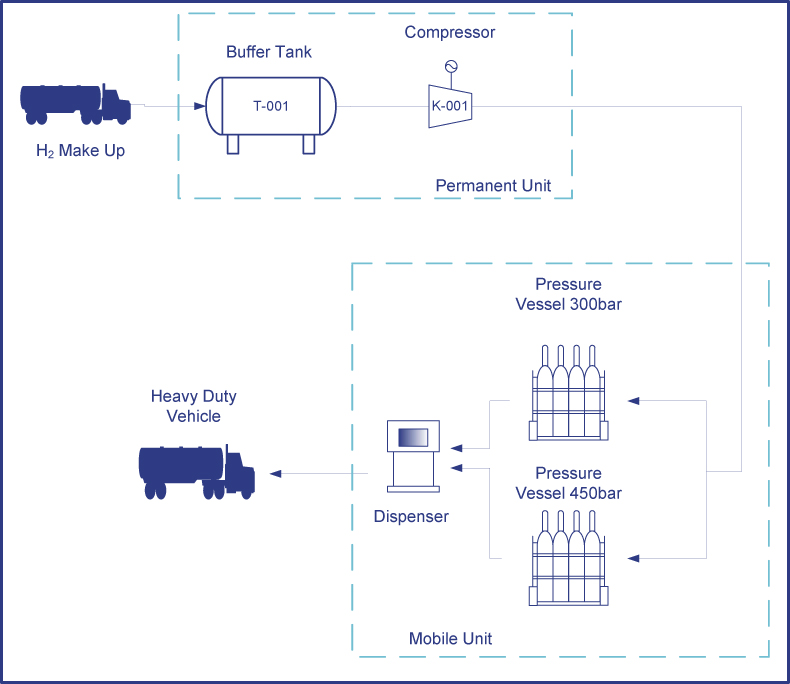The hydrogen Fuel Cell Reach Stacker will be tested at MSC Terminal Valencia (MSCTV), one of the three container terminals operating in the port of Valencia (Spain). MSC Terminal Valencia belongs to Mediterranean Shipping Company, the second largest shipping company in the world. It is strategically located 350 km. far from Madrid, being the most important terminal of the group in the West Mediterranean area. MSC Terminal Valencia is able to operate the biggest container ships up today (more than 20,000 TEU capacity).
This pilot of a pre-commercial Reach Stacker is aligned with Hyster-Yale’s Group strategy concerning emission reduction, which comprises the progressive evolution from their current diesel-mechanical powered to the achievement of zero emissions power solutions for large freight management equipment at seaports. The expected autonomy between refuelling and the inherent energy consumption of these large vehicles requires a considerable amount of energy to be stored on board the vehicle. The highly demanding and varied duty cycles in these intense operations make recharging time a critical factor in the operational costs of the owners. The use of hydrogen fuels cells stands out against other available technologies in these conditions, as it shows considerable autonomy and a reloading time comparable to conventional diesel.
As the first of its kind, the Reach Stacker will be able to support continuous operations while providing zero emissions and achieving comparable full shift performance to a conventional Reach Stacker powered with a diesel engine. It is expected that maintenance costs will be reduced thanks to the removal of the engine, transmission and other mechanical-driven components. In addition, noise levels will be low, and if fuelled with green hydrogen, the carbon balance can be considered as almost neutral.







